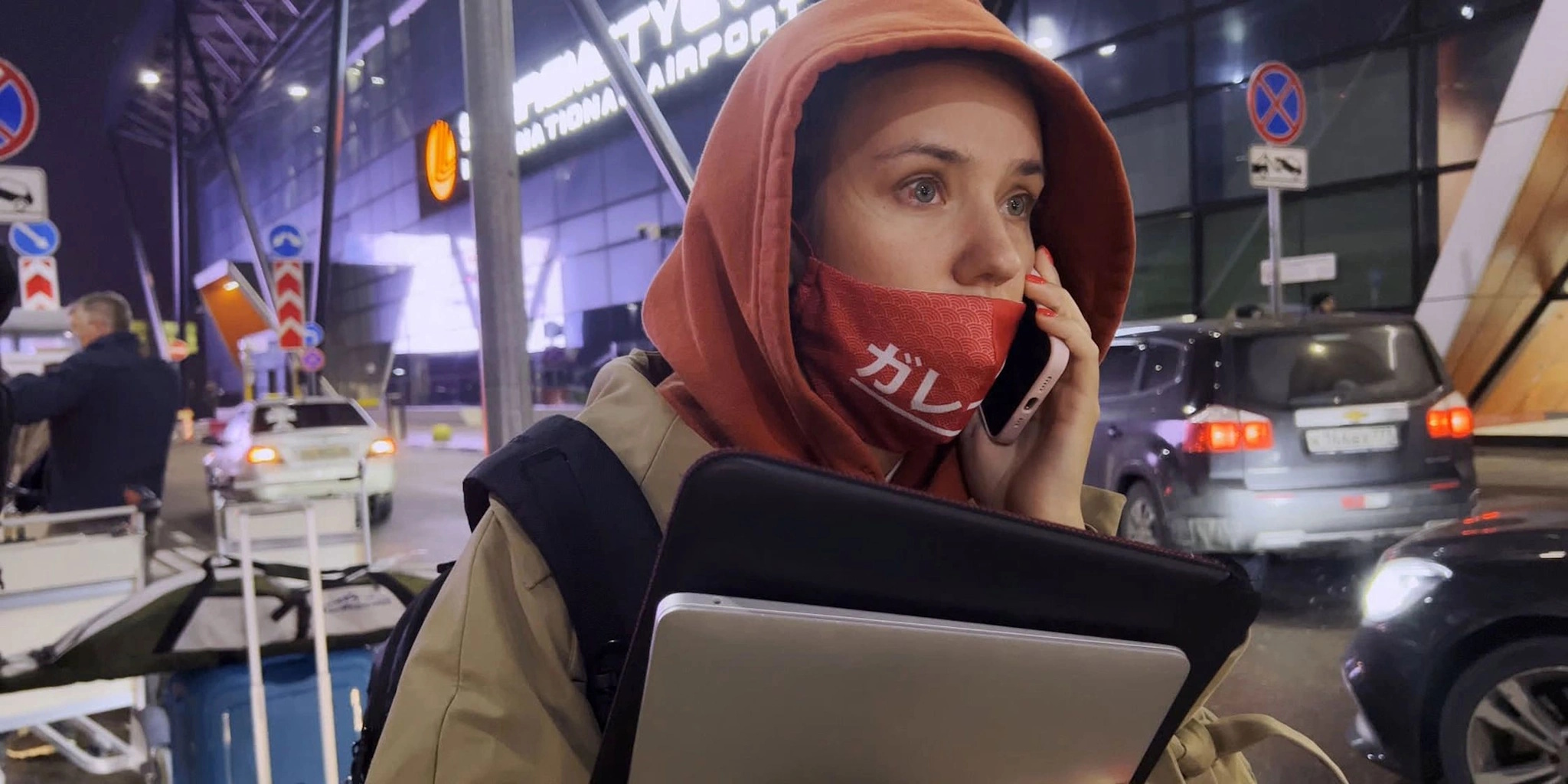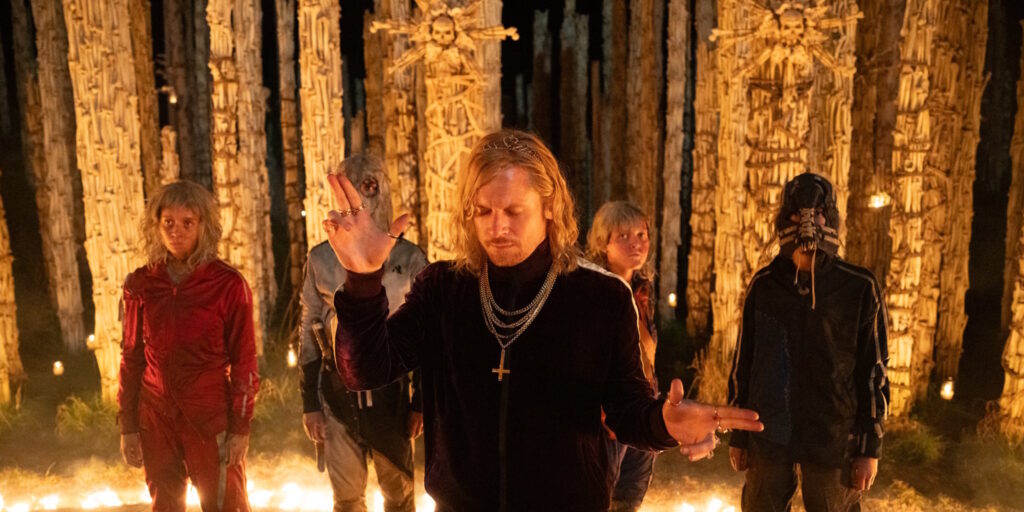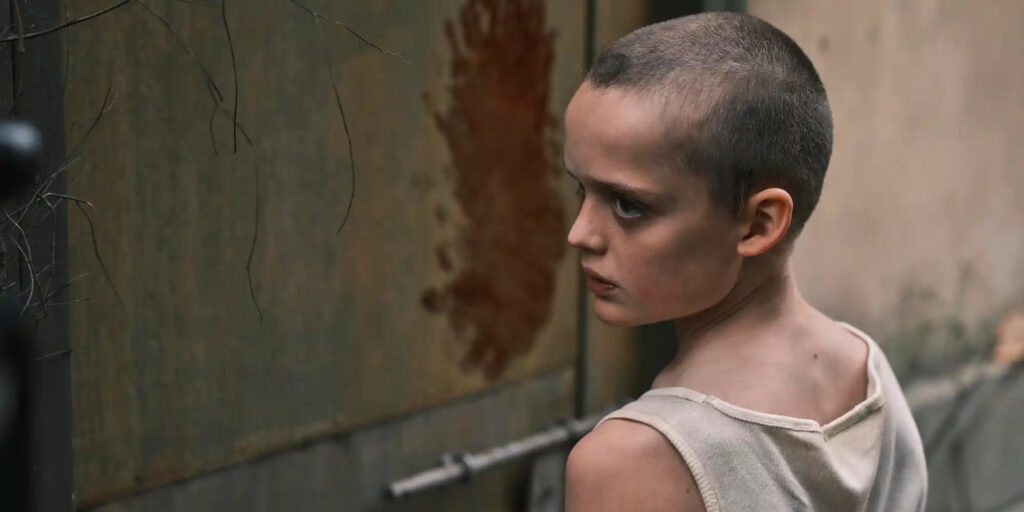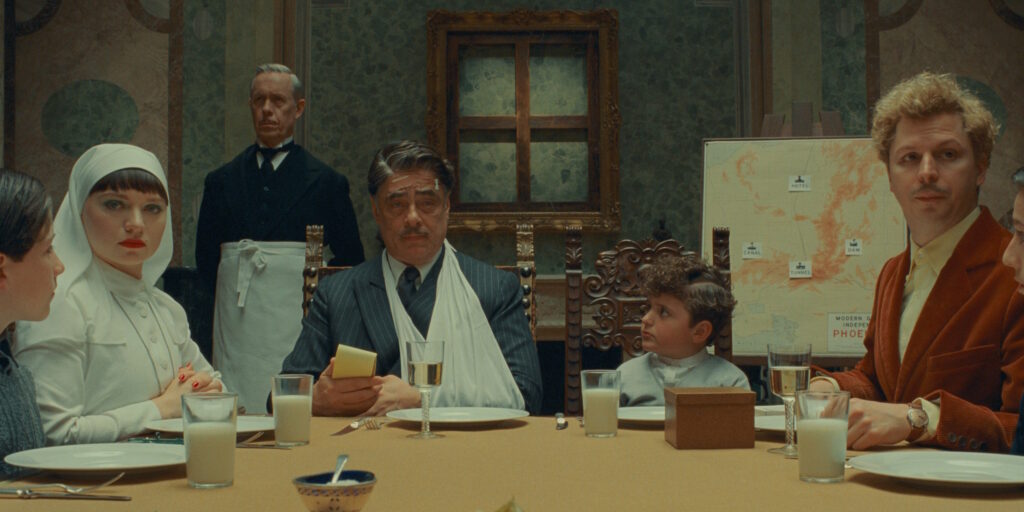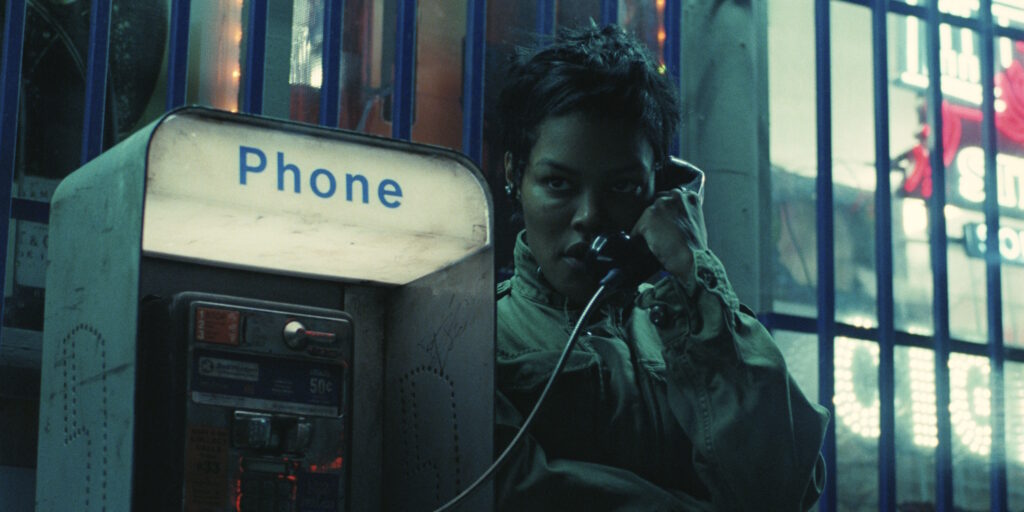A group portrait of seven independent Russian journalists, My Undesirable Friends: Part 1 – Last Air in Moscow – which screens at Webster University from Oct. 24-26 – saddens, inspires, and enrages in equal measure. Setting out to profile individuals declared “foreign agents” by the government, director Julia Loktev begins recording these indomitable young women – most still in their 20s but already severely stress-tested by censorship, threats of imprisonment, and sanctions – in the months before the Russian invasion of Ukraine in February 2022. When war arrives, Loktev is thus inadvertently embedded with the few Russian media outlets still operating with a limited degree of autonomy and willing to counter the Kremlin’s wholly baseless justification for the conflict (i.e., “denazifying” Ukraine’s government and stopping its supposed campaign of genocide against the Russian minority in the country’s Donbas region).
Because of that happenstance of timing, My Undesirable Friends provides an especially unique, valuable perspective on the war’s early days, recording in real time the Kremlin’s swift imposition of full state control by suppressing all dissent and shutting down the remaining vestiges of a free press. But well before that transpires – in the last of the film’s five chapters – My Undesirable Friends makes it abundantly clear that Vladimir Putin’s regime was long planning its move from authoritarianism into unchecked fascism.
Having steadily converted most media outlets into propaganda arms of the Kremlin during his 25-year reign, Putin began a final push to bring the press to heel when his government started labeling organizations and individuals “foreign agents” in mid-2021 – all but declaring them enemies of the state. Among its malign effects, this designation requires that the putative foreign agent append all public communications – even something as innocuous as an Instagram post of vacation pictures – with this disclaimer: “This message (material) has been created and (or) disseminated by a foreign source of mass media serving the function of a foreign agent and (or) a Russian legal entity serving the function of a foreign agent.” Perhaps even more onerous, the foreign agents are also forced to engage in an epic time suck by submitting quarterly reports that minutely detail all personal expenses. Any violation of these rules results in a fine and, if repeated, potential jail time.
Loktev explores the impact of the foreign-agent law and the ever-tightening restrictions on reporting in the film’s initial chapters, inexorably building to the Kremlin’s final clampdown after the invasion of Ukraine. Although My Undesirable Friends unpacks a considerable amount of information, it smartly avoids traditional talking heads and keeps explanatory graphics to a minimum, tightly focusing on its seven primary subjects and their personal stories. Unobtrusively shooting with an iPhone, Loktev essentially served as a one-person film crew, allowing a real conversational intimacy to develop. That connection was no doubt further enhanced by her ability to speak Russian – she was born in the Soviet Union before emigrating to the U.S. at age 9 – and the journalists’ comfort with Loktev’s presence results in on-camera interactions of unguarded candor. (That openness shouldn’t entirely surprise, given that the reporters often must ask their own sources for similar access to revealing thoughts and private spaces.)
The film also benefits from the generous amount of time it spends in the studios and offices of TV Rain, an independent station that survived both a government-decreed exile from cable and an exodus of cowed advertisers by establishing a subscriber-based online presence. Several of My Undesirable Friends’ subjects worked for TV Rain, including the film’s most essential presence: Anna Nezmer, or Anya, who introduced Loktev to her journalistic colleagues and who receives credit as the documentary’s co-director. Anya serves as Loktev’s Virgil, guiding her through the Russian political hellscape, and because a good portion of My Undesirable Friends unfolds at TV Rain, excerpts from broadcasts appear throughout, seamlessly providing helpful intel and context.
Another of TV Rain’s employees, 23-year-old reporter Ksenia Mironova, or Ksyusha, provides some of the film’s most wrenching emotional moments. As she dutifully works her stories, Ksyusha agonizes over the fate of her fiancé, Ivan Safronov, whom Russia has imprisoned without trial for more than a year on vague charges of “treason.” Denied any visitation or real communication, she vainly sends care packages to the prison without any assurance that the goods will find their way to him.
Journalism always remains central to My Undesirable Friends, but the film does sometimes widen its scope to examine other topics. Because two of the documentary’s subjects are gay – Elena Kostyuchenko¹, or Lena, who contributes exquisite long-form journalism to the independent newspaper Novaya Gazeta, and Alesya Marokhovskaya, who writes for the investigative journal Important Stories – My Undesirable Friends addresses, at least tangentially, another troubling aspect of Russian society: its suppression of LGBTQ rights. Targeted by the state as both lesbians and journalists, Lena and Alesya therefore face existential threat and legal jeopardy not just at their jobs but also in their personal lives. And those dangers are emphatically not hyperbole, as this brief list illustrates:
- Seven of Novaya Gazeta’s reporters have been murdered.
- Important Stories editor Roman Anin was compelled to flee the country after an arrest warrant was issued for his disseminating “false information” about Russian forces in Ukraine.
- Russia has declared the “international LGBT movement” an extremist organization, which effectively criminalizes gay activism.
As every review of My Undesirable Friends will observe, the lessons the film teaches seem urgently relevant to the United States as it careers toward full-on authoritarianism. Dear Leader Trump looks with undisguised envy on Putin’s quashing of free speech, strangling of independent media, and jailing of enemies. Can there be any remaining doubt that Trump’s intimidated congressional toadies, compliant Supreme Court majority, and vile administration minions – Pete Hegseth, Kristi Noem, Steven Miller, Pam Bondi, Brendan Carr, Kash Patel, Russell Vought et al. – aim to emulate Russia’s game plan? If we’re to thwart Trump’s end run around democracy, we would do well to examine the same Kremlin playbook, and My Undesirable Friends provides some key pages for close study.
Some of you may understandably find the five-and-a-half-hour length of My Undesirable Friends too daunting – and the film’s five-chapter structure is undeniably better suited to a streaming-service binge – but Webster has smartly constructed its schedule to allow for breaks in your viewing. I urge you to conquer any hesitation and commit: The film’s rewards are as ample as its running time.
¹ For further insight, I recommend Kostyuchenko’s superb I Love Russia, which combines memoiristic interludes with deeply reported stories.
The Webster University Film Series will be screening My Undesirable Friends: Part 1 – Last Air in Moscow in two segments over the Oct. 24 – 26 weekend. Chapters 1 – 3 will screen on Friday, Oct 24 at 6:30 p.m. Chapters 4 – 5 will screen on Saturday, Oct. 25 at 7 p.m. Both segments will then be screened again, this time back-to-back, on Sunday, Oct. 26 at 4 p.m. and 8 p.m., respectively.
